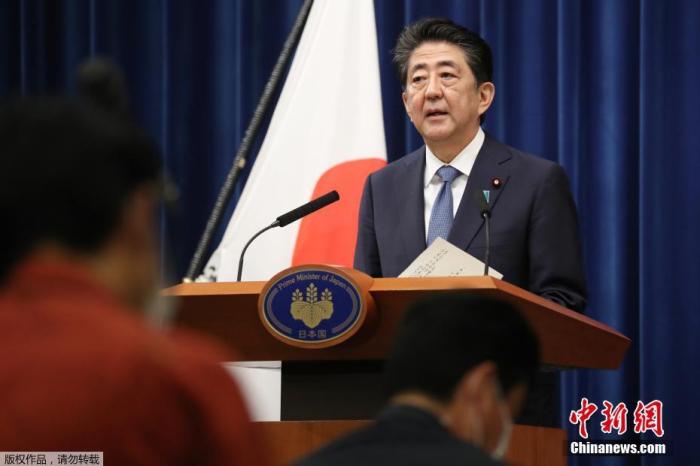Japan will propose a new missile defense plan before the end of the year
Kyodo News reported on the 11th that Japanese Prime Minister Shinzo Abe issued a statement on the same day that Japan must strengthen its defense capabilities and will propose a new plan before the end of this year to respond to the country’s missile threat.
【Strong Defense】
At about 5 pm on August 28, local time, Japanese Prime Minister Shinzo Abe announced his resignation as prime minister at a press conference.
The picture shows the scene of the press conference.
Abe said on the 11th that Japan’s security environment is more challenged and may face ballistic missile threats from North Korea.
"I think it is necessary to strengthen defenses to reduce the possibility of Japan being attacked by ballistic missiles or other attacks."
In order to thwart the aforementioned attacks that may occur, the Japanese government decided to formulate a new missile defense plan.
In December 2017, Japan decided to introduce two land-based Aegis missile defense systems from the United States, and the deployment will be completed in fiscal year 2025 at the earliest.
Affected by the opposition of the people in Akita and Yamaguchi prefectures in northeastern Japan to the deployment of the "Aegis" system, and the multiple data errors in the deployment by the Japanese government in recent years, Japanese Defense Minister Taro Kono announced on June 25 that it would abandon the deployment plan.
The Japanese government intends to determine the basic direction of the alternative plan by the end of September.
On August 28, Abe announced his resignation due to health issues. The ruling Liberal Democratic Party is scheduled to vote on the 14th of this month to elect a new party president.
Analysts believe that Abe's proposal of the missile defense plan before leaving office shows that he attaches great importance to it and shows that he hopes to delineate the direction of future discussions on this topic.
Takesada Hideshi, a visiting scholar and defense expert at Takushoku University in Japan, said: "Missile defense is an unresolved issue for Abe... This statement by Abe aims to lay the foundation for a new defense policy and leave his political legacy to the next. government."
【Opposed】
Abe insisted that the discussion of missile defense conforms to the Japanese Constitution and international law.
He said: "Japan's defensive defense policy will not change."
Agence France-Presse reported that even in the name of deterrence and defense, Japan’s possible strike capability remains controversial.
The ruling ally of the Liberal Democratic Party, the Komeito Party, strongly opposes any offensive military expansion, arguing that the high cost of the missile defense program may attract opposition.
After the Second World War, Japan pursued a basic military strategy of "dedicated in defense" and relied on the United States in the field of defense. The Abe government forcibly passed the new security law in September 2015, lifting the ban on collective self-defense rights, fundamentally changing this policy, causing concerns in Japan, Asian countries, and the international community. As Japan passed the new version of the "Outline of Defense Plan" at the end of 2018, and its defense expenditure hit a record high, the concept of "dedicated defense" has essentially been emptied. (Bao Xuelin) (Xinhua News Agency Special Feature)

